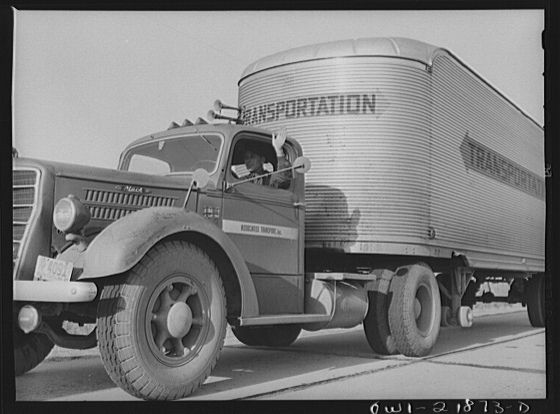Who's vetting your carriers?
Well, who are you? (Who are you? Who, who, who, who?)
I really wanna know (Who are you? Who, who, who, who?)
Does this sound familiar? Yes, it’s one of greatest songs from one of the greatest Rock & Roll bands of all time, The Who. But it’s also one of the most important things to think about when selecting a freight carrier to move your load.
What are Freight Carriers?
Freight carriers transport the cargo on behalf of the shipper across the land, sea, and air. Some companies specialize in just one mode of transport while others offer multimodal services.
The latter often use a combination of trucks, ships, and planes depending on the requirements of cargo (e.g. cost, estimated time of arrival, weight, etc.)
Some also offer international services while others focus on domestic operations, and even only within certain regions of the country. Cargo airlines, standard airlines, and ocean carriers mostly carry international freight while freight trucking and railroad companies usually carry domestic freight.
For international shipments, a different carrier is usually responsible for picking up the package, crossing international borders by air or sea, and delivering it to the destination.
Freight carriers have governing bodies that regulate and set standards for the industry. They also help streamline prices on the services of the carriers. Some of the recognized organizations include:
- International Air Transport Association (IATA) - an association composed of cargo and standard airlines around the world that promotes the safety, security, and reliability of air services.
- Transportation Intermediaries Association (TIA) - a governing body for third-party logistics (3PL) services that sets professional standards and provides direction for the industry.
- Freight Transport Association (FTA) - a British organization composed of freight companies and freight carriers that promotes efficiency of logistics services in the UK.
Freight Carriers vs. Freight Forwarders
Shippers can use both freight carriers and freight forwarders for international shipping and both have their advantages and disadvantages too.
Shippers are more flexible with freight carriers because they’re only availing of one service. They can switch carriers who offer better bang-for-buck at popular routes or when they need to re-route their shipment because certain ports are causing delays.
However, they are particularly at the mercy of volatile prices of ocean freight, which change every week and even every day. Especially when the ship isn’t full, they can’t take advantage of discounted rates when their shipment doesn’t meet the minimum volume required by the carrier.
On the other hand, shippers enjoy lower shipping costs with freight forwarders because their cargo is usually part of a bigger volume that the forwarder has negotiated with the carrier.
They also benefit from more services that forwarders offer, like documentation, customs clearance, duty negotiation, etc. For example, cargo insurance claims and extended holds in customs aren’t covered by the carrier because the shipment is out of their vessel already. Forwarders solve this problem because they also manage the cargo after it has been unloaded from the vessel.
Since shippers are only working with one company who is knowledgeable of the whole shipping process, it’s easier to get their goods out of their warehouse and straight to their dealers or customers.
They also enjoy other benefits. They can track their shipment and only have to pay one solutions provider. They also avoid the higher upfront cost because carriers charge fees while the package is still in transit. But with forwarders, they would only be charged when their package has arrived at the destination.
To sum it all up, shippers are only covered by freight carriers from port to port while they’re covered all the way through with freight forwarders.
How to Vet & Choose the Best Freight Carrier
At FreightPros, we use a vetting process that combines several of the largest and most trusted online carrier databases (DAT & ITS), the FMCSA safety rating, the CSA history, and our own internal carrier database. These are five incredible sources of vetting power we use to research a carrier before putting them under FreightPros load.
What does vetting mean? We run each carrier’s authorities through these databases and cross reference them against what we find through our other tools. The carrier must meet our requirements through each of these tools and databases before we place them on a load.
We also want to know what the carrier's hauling history looks like before we contact them to haul a load. Not every carrier has a defined or detailed history listed, but when we do come across an entry, good or bad, we take that into account when considering whether or not to do business with them.
Is this the system perfect? No, there will still be carriers who will clear the vetting process who provide less than desirable service. But by combining all five of the resources mentioned above, we have the best odds at placing your freight with a reliable carrier.
Beyond using these tool and resources, we’ve also developed a methodology that we apply directly to each shipment when coordinating and negotiating the load details with carriers. We want to make sure the information we have about the specific truck is as accurate as possible.
To accomplish this we have an internal checklist we run through with each carrier and hold the carrier accountable for these details. This allows us to identify potential issues early on in the life of the load, and gives us the time to mitigate them thoroughly.
Why does this matter to you as a shipper? Simply put, your freight is always at risk while in transit, no matter who the carrier or broker may be. But what you have to ask yourself is: Has that carrier or broker done all they can make sure my freight is in the best position possible to arrive on time, intact, and with a company you trust to get the job done?
